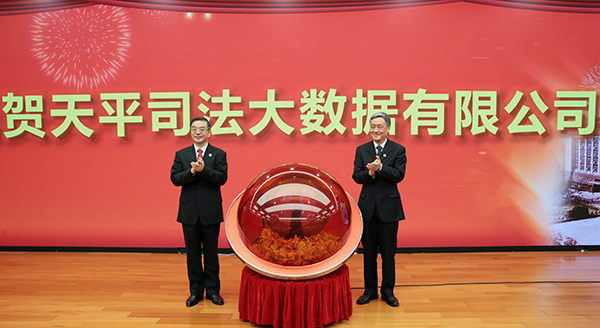SPC head: speed up building 'Smart Courts'
The head of China's top tribunal called for speeding up construction of "Smart Courts" to ease case filing and better serve socio-economic development on Nov 10 in Beijing.
 |
|
Zhou Qiang (L), president of the Supreme People's Court of China, attends the launching ceremony of a judicial big data company in Beijing on Nov 10. [Photo by Sun Ruofeng/People's Court Daily] |
A new company was set up to implement a legal system big data strategy, integrate resources, and innovate management and operations.
The China University of Political Science and Law will accelerate information management to improve talent cultivation.
"With the deepening of economic globalization and social informatization, information technology is playing and will play a bigger role in promoting human civilization," said Zhou.
 |
|
Zhou Qiang (center), calls for speeding up construction of "Smart Courts" at a meeting in Beijing on Nov 10. [Photo by Sun Ruofeng/People's Court Daily] |
Judicial big data, said Zhou, has significant potential to improve trial efficiency and make public service in the judicial sector more transparent.
Cutting-edge technologies, such as cloud computing, should also be used to support the construction of "Smart Courts", noted Zhou.







